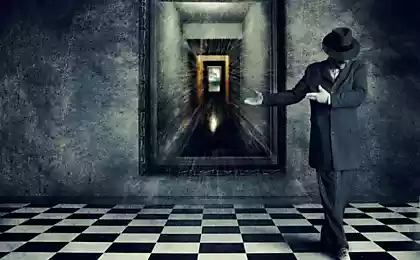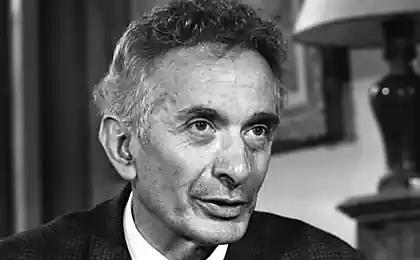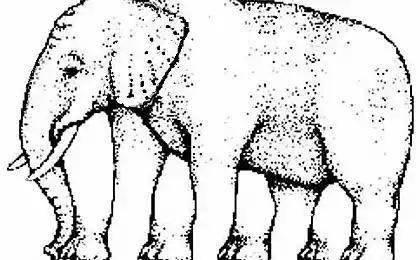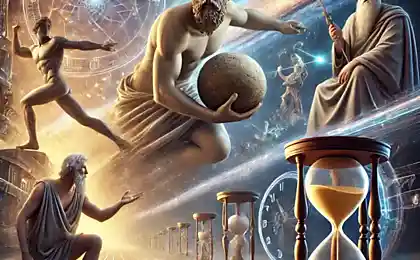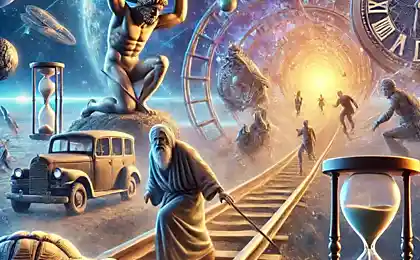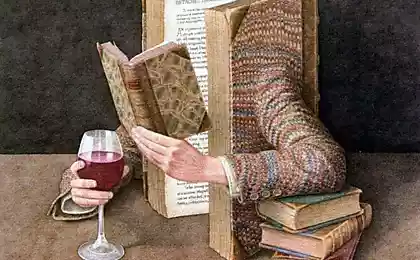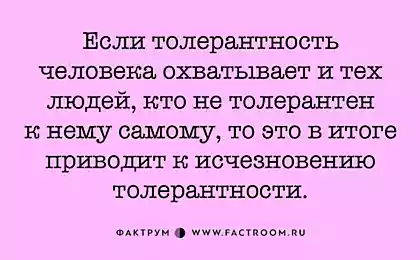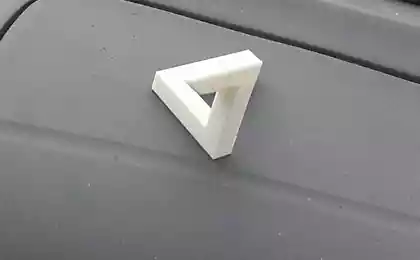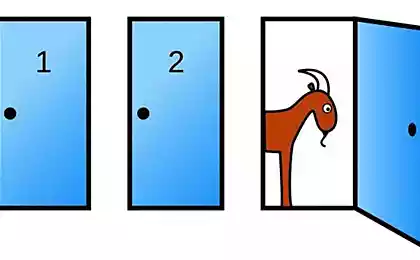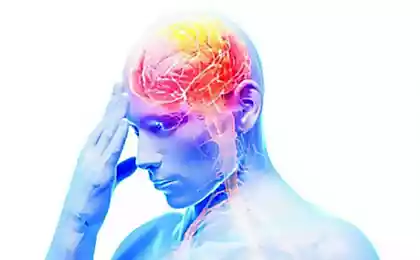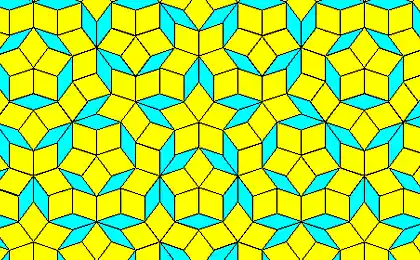1455
Scientific Paradoxes
The paradox - an event, a situation, act or omission that may exist, or exists in reality, but is contrary to logical explanation. I offer you a little break his head over the cut 10 provided under the curious paradox. Russell's paradox.
The paradox that its discoverer, the famous British philosopher and mathematician Bertrand Russell was referred to as the paradox of the barber, strictly speaking, can be considered a form of the paradox of the liar.
Suppose passing the barbershop, you saw her ad, "you shave yourself? If not, you are welcome to have a shave! I shave everyone who does not shave himself, and no one else! ". It is natural to ask the question: how is controlled by its own barber bristle if he shaves only those who do not shave yourself? If he does not shave his own beard, it is contrary to his boastful statement: "I shave everyone who does not shave himself».
Of course, it is easier to assume that overburdened barber just did not think about the contradiction contained in it the sign and forget about this problem, but try to understand the essence of it is much more interesting, though it will have a short time to plunge into a mathematical set theory.
Russell's paradox is: "Let K - the set of all sets that do not contain themselves as an element of its own. Does K itself as its own element? If so, it rejects the assertion that the plurality in its composition "does not contain itself as its own element," but if not, there is a contradiction to the fact that K is a set of all sets that do not contain themselves as their own element, and hence K must contain all possible elements, including myself ».
The problem arises from the fact that Russell reasoning used the concept of "set of all sets", which in itself is quite contradictory, and guided with the laws of classical logic, which are applicable not in all cases (see para. Six).
Opening barber paradox provoked heated debate in various scientific circles, which still continues to this day. To "save" the theory of sets of mathematics developed several systems of axioms, but evidence of the consistency of these systems, and there is, according to some scientists, there can not be.
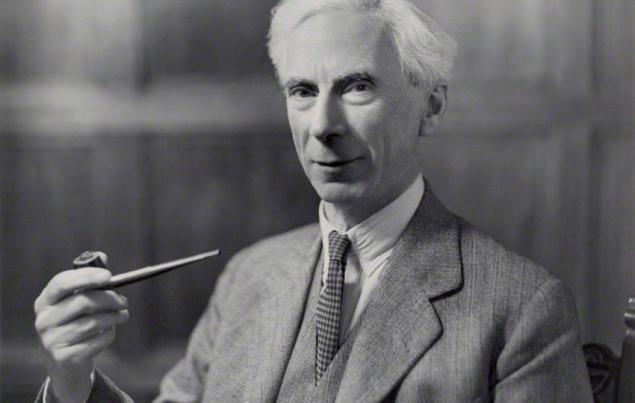
The paradox of value.
The phenomenon, also known as the paradox of diamonds and water or a paradox Smith (named in honor of Adam Smith - author of classic works on the economic theory, which is believed to be the first to formulate this paradox), lies in the fact that although the water as a resource more useful pieces of crystal carbon, called us in diamonds, the price on the international market last disproportionately higher cost of water.
In terms of the survival of the water really need humanity more diamonds, but its reserves are, of course, more stocks of diamonds, so the experts say that there is nothing strange in the price difference is not - we are talking about the unit cost of each resource, and it is largely determined by such factor as the marginal utility.
In a continuous act of consumption of a resource limiting its usefulness and, as a consequence, the price inevitably falls - this pattern in XIX-th century opened the Prussian economist Hermann Heinrich Gossen. Simply put, if a person consistently offer three cups of water, he drank first, with water from the second Feeds, and the third will go to wash the floor.
Most of humanity does not feel the urgent need of water - enough to get her number, one has only to open the water tap, but diamonds are not all, why they are so expensive.

Grandfather paradox.
This paradox in 1943 suggested that the French science fiction writer Rene Barzhavel in his book "unwary travelers" (original «Le Voyageur Imprudent»).
Let's say you managed to invent a time machine, and you went for it in the past. What happens if you met his grandfather and kill him before he met your grandmother? Probably not everyone will like this bloody scenario, so let's say you prevent meeting the other way, for example, it will take away on the other end of the world, where he would never know of its existence, the paradox does not disappear.
If the meeting does not take place, your mother or father will not appear on the light, will not be able to conceive you, and you are therefore not invent a time machine and not get into the past, so my grandfather could freely marry my grandmother, they will be born one of your parents, and so on - there is a paradox.
The story of a grandfather killed in the past often been cited by scientists as proof of basic impossibility of time travel, but some experts say that under certain conditions, the paradox is quite solvable. For example, killing his grandfather, a time traveler will create an alternate version of reality in which he will never be born.
In addition, many have suggested that even once in the past, a person can not influence it, as this will lead to a change in the future, of which he is. For example, the attempted murder of his grandfather is doomed to failure - after all if there is a grandson, then his grandfather, somehow, survived an assassination attempt.
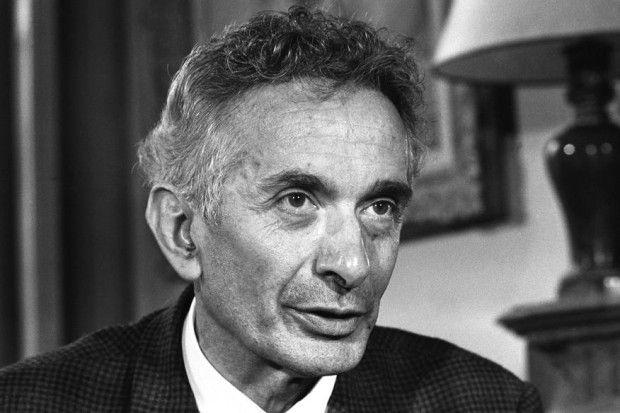
Ship of Theseus.
Name paradox gave one of the Greek myths, describing the exploits of the legendary Theseus, one of the kings of Athens. According to legend, a few hundred years the Athenians kept the ship on which Theseus returned to Athens from Crete. Of course, the ship fell into disrepair, and carpenters replaced rotten boards on the new, resulting in him there is not a piece of old wood. The best minds of the world, including eminent philosophers such as Thomas Hobbes and John Locke centuries to reflect on whether it is possible to assume that on this ship once traveled Theseus.
Thus, the essence of the paradox as follows: if you replace all of the new object, whether it can be the same object? Furthermore, the question arises - if from old parts to assemble exactly the same object, which of the two will be "thus"? Representatives of different philosophical schools gave directly opposite answers to these questions, but some contradictions in the possible solutions to the paradox of Theseus still exist.
By the way, when you consider that the cells of our body is almost completely renewed every seven years, can we assume that in the mirror, we see the same person, that seven years ago?
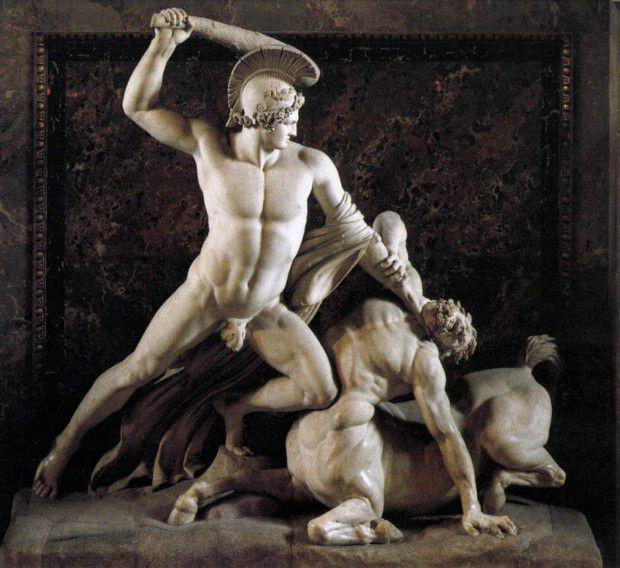
Galileo's paradox.
Outdoor Galileo demonstrates the phenomenon of contradictory properties of infinite sets. Brief statement of the paradox is this: the natural numbers as much as their squares, that is, the number of elements of an infinite set of 1, 2, 3, 4 ... equal to the number of elements of an infinite set 1, 4, 9, 16 ...
At first glance, no contradiction here, but the same Galilei in his "Two science" claims: some numbers are perfect squares (ie, one can extract a square root), while others are not so perfect squares with ordinary numbers It must be greater than one perfect squares. Meanwhile, earlier in the "Science" meets the postulate that the squares of the natural numbers as much as the natural numbers themselves, and these two statements are directly opposite each other.
Galileo himself believed that the paradox can only be solved with respect to finite sets, but Georg Cantor, one of the German mathematicians the XIX-th century, developed his theory of sets, according to which Galileo's second postulate (about the same number of elements) is also true for infinite sets. To do this, Cantor introduced the concept of cardinality, which in the calculations for both infinite sets coincide.
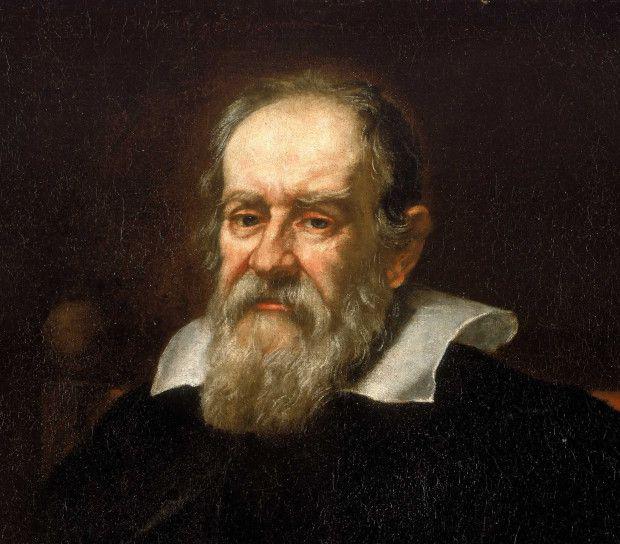
The paradox of thrift.
The most famous formulation of a curious economic phenomenon described Uoddilom Ketchingsom and William Foster as follows: "The more we postpone for a rainy day, the faster it will come." To understand the contradictions, prisoner in this phenomenon, a bit of economic theory.
If during a recession most people start to save their savings, reduced aggregate demand for goods, which in turn leads to a decrease in earnings, and as a consequence - the fall of the general level of the economy and reduce savings. Simply put, there is a kind of vicious circle where consumers spend less money, but thus impair their well-being.
In a way similar to the paradox of thrift problem of game theory, called the prisoner's dilemma: the actions that are beneficial to each participant individually the situation to be harmful to them as a whole.
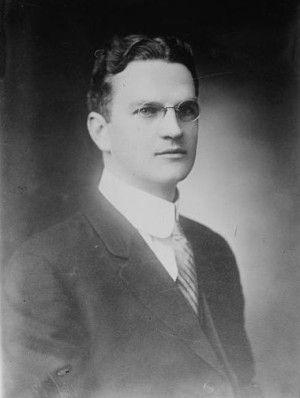
The paradox of Pinocchio.
It is a kind of philosophical problems, known as the paradox of the liar. This paradox is simple in form but not in content. It can be expressed in three words: "This statement is - a lie", or even two - "I am lying." In the version with Pinocchio problem is formulated as follows: "My nose is now growing».
I think you understand the contradiction contained in this statement, but just in case, dot the e: if the sentence is true, then the nose is really growing, but it means that at the moment the brainchild of Pope Carlo lies, which can not be so as we have seen, that the statement is true. So, the nose should not grow, but if it is not true, the statement still true, and this in turn suggests that Pinocchio is lying ... and so on - a chain of mutually cause and effect can be continued indefinitely.
Liar paradox shows a contradiction saying colloquially formal logic. In terms of classical logic the problem is unsolvable, so the statement "I am lying" is not considered logical.
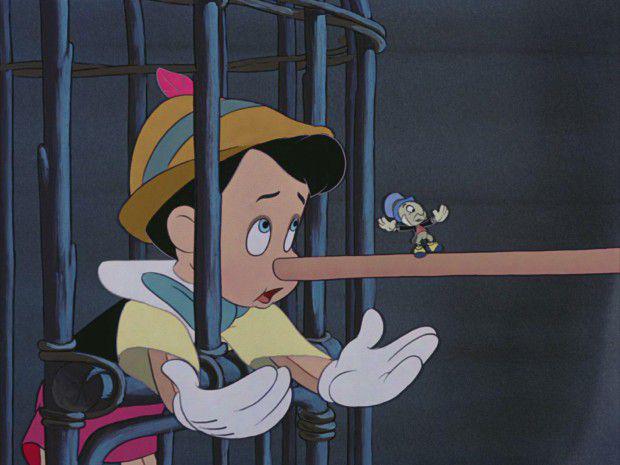
The paradox birthdays.
The essence of the problem is this: if there is a group of 23 or more people, the probability that two of their birthdays (day and month) coincide, more than 50%. For groups of 60 people the chance of more than 99%, but up to 100%, but if a group of at least 367 of a person (including leap years). This is evidenced by the Dirichlet principle, named for its discoverer, the German mathematician Peter Gustav Dirichlet.
Strictly speaking, from a scientific point of view, this statement does not contradict the logic and therefore is not a paradox, but it demonstrates the great difference of the results of the intuitive approach and mathematical calculations, because at first sight for such a small group of probability of coincidence seems greatly exaggerated.
If we look at each member of the group individually, assessing the probability of coincidence of his birthday with someone else, for each person the chance to be around 0, 27%, so the overall probability for all members of the group should be about 6, 3% (23 / 365). But this is totally wrong, because the number of possible choices of certain pairs of 23 people is much higher than the number of its members and is (23 * 22) / 2 = 253, based on the formulas for calculating the so-called number of combinations of a given set. We will not go into combinatorics, you can at your leisure to check the correctness of calculations.
For 253-x variants couples a chance that the month and date of birth of the participants of one of them will be the same as you've probably guessed, is much greater than 6, 3%.
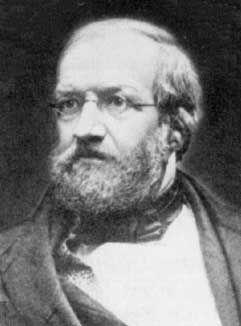
Chicken and egg problem.
Surely, each one of you at least once in their lives asked the question: "Which came first - the chicken or the egg?". Sophisticated in zoology know the answer: the birds were born from eggs long before the emergence among them of chicken. It is worth noting that in the classical formulation is said to be just about the birds and eggs, and it allows easy solution: for example, dinosaurs appeared before the birds, and they also reproduce by laying eggs.
Taking into account all these details, we can formulate the problem as follows: what came before - the first animal, eggs, egg, or actually it because somewhere had hatched a representative of a new kind.
The main problem is to install a causal connection between the phenomena of fuzzy volume. For a more complete understanding of this review how fuzzy logic - a generalization of classical logic and set theory.
Put simply, the fact that the animals in the course of evolution have gone through countless intermediate stages - this also applies to methods of breeding. At various stages of evolution they set aside various items which can not be clearly defined as eggs, but having some resemblance to them.
Probably, objective solutions to this problem does not exist, although, for example, the British philosopher Herbert Spencer suggested that such an option, "Chicken - just the way one egg produces another egg».
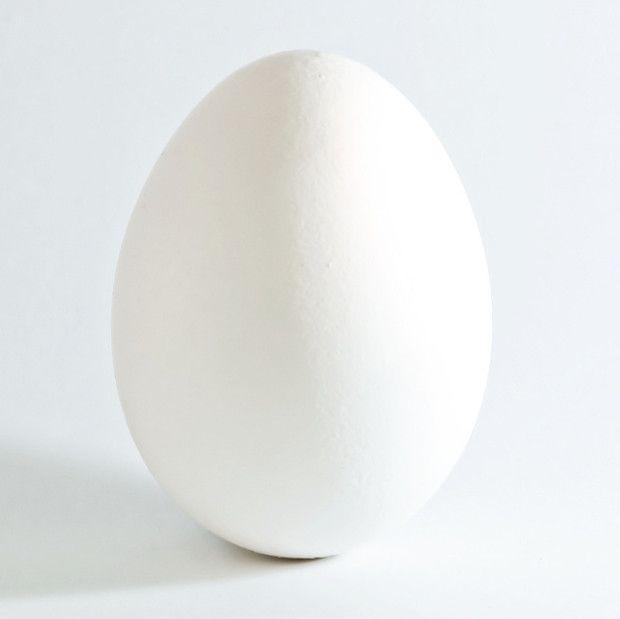
Source: www.publy.ru
The paradox that its discoverer, the famous British philosopher and mathematician Bertrand Russell was referred to as the paradox of the barber, strictly speaking, can be considered a form of the paradox of the liar.
Suppose passing the barbershop, you saw her ad, "you shave yourself? If not, you are welcome to have a shave! I shave everyone who does not shave himself, and no one else! ". It is natural to ask the question: how is controlled by its own barber bristle if he shaves only those who do not shave yourself? If he does not shave his own beard, it is contrary to his boastful statement: "I shave everyone who does not shave himself».
Of course, it is easier to assume that overburdened barber just did not think about the contradiction contained in it the sign and forget about this problem, but try to understand the essence of it is much more interesting, though it will have a short time to plunge into a mathematical set theory.
Russell's paradox is: "Let K - the set of all sets that do not contain themselves as an element of its own. Does K itself as its own element? If so, it rejects the assertion that the plurality in its composition "does not contain itself as its own element," but if not, there is a contradiction to the fact that K is a set of all sets that do not contain themselves as their own element, and hence K must contain all possible elements, including myself ».
The problem arises from the fact that Russell reasoning used the concept of "set of all sets", which in itself is quite contradictory, and guided with the laws of classical logic, which are applicable not in all cases (see para. Six).
Opening barber paradox provoked heated debate in various scientific circles, which still continues to this day. To "save" the theory of sets of mathematics developed several systems of axioms, but evidence of the consistency of these systems, and there is, according to some scientists, there can not be.

The paradox of value.
The phenomenon, also known as the paradox of diamonds and water or a paradox Smith (named in honor of Adam Smith - author of classic works on the economic theory, which is believed to be the first to formulate this paradox), lies in the fact that although the water as a resource more useful pieces of crystal carbon, called us in diamonds, the price on the international market last disproportionately higher cost of water.
In terms of the survival of the water really need humanity more diamonds, but its reserves are, of course, more stocks of diamonds, so the experts say that there is nothing strange in the price difference is not - we are talking about the unit cost of each resource, and it is largely determined by such factor as the marginal utility.
In a continuous act of consumption of a resource limiting its usefulness and, as a consequence, the price inevitably falls - this pattern in XIX-th century opened the Prussian economist Hermann Heinrich Gossen. Simply put, if a person consistently offer three cups of water, he drank first, with water from the second Feeds, and the third will go to wash the floor.
Most of humanity does not feel the urgent need of water - enough to get her number, one has only to open the water tap, but diamonds are not all, why they are so expensive.

Grandfather paradox.
This paradox in 1943 suggested that the French science fiction writer Rene Barzhavel in his book "unwary travelers" (original «Le Voyageur Imprudent»).
Let's say you managed to invent a time machine, and you went for it in the past. What happens if you met his grandfather and kill him before he met your grandmother? Probably not everyone will like this bloody scenario, so let's say you prevent meeting the other way, for example, it will take away on the other end of the world, where he would never know of its existence, the paradox does not disappear.
If the meeting does not take place, your mother or father will not appear on the light, will not be able to conceive you, and you are therefore not invent a time machine and not get into the past, so my grandfather could freely marry my grandmother, they will be born one of your parents, and so on - there is a paradox.
The story of a grandfather killed in the past often been cited by scientists as proof of basic impossibility of time travel, but some experts say that under certain conditions, the paradox is quite solvable. For example, killing his grandfather, a time traveler will create an alternate version of reality in which he will never be born.
In addition, many have suggested that even once in the past, a person can not influence it, as this will lead to a change in the future, of which he is. For example, the attempted murder of his grandfather is doomed to failure - after all if there is a grandson, then his grandfather, somehow, survived an assassination attempt.

Ship of Theseus.
Name paradox gave one of the Greek myths, describing the exploits of the legendary Theseus, one of the kings of Athens. According to legend, a few hundred years the Athenians kept the ship on which Theseus returned to Athens from Crete. Of course, the ship fell into disrepair, and carpenters replaced rotten boards on the new, resulting in him there is not a piece of old wood. The best minds of the world, including eminent philosophers such as Thomas Hobbes and John Locke centuries to reflect on whether it is possible to assume that on this ship once traveled Theseus.
Thus, the essence of the paradox as follows: if you replace all of the new object, whether it can be the same object? Furthermore, the question arises - if from old parts to assemble exactly the same object, which of the two will be "thus"? Representatives of different philosophical schools gave directly opposite answers to these questions, but some contradictions in the possible solutions to the paradox of Theseus still exist.
By the way, when you consider that the cells of our body is almost completely renewed every seven years, can we assume that in the mirror, we see the same person, that seven years ago?

Galileo's paradox.
Outdoor Galileo demonstrates the phenomenon of contradictory properties of infinite sets. Brief statement of the paradox is this: the natural numbers as much as their squares, that is, the number of elements of an infinite set of 1, 2, 3, 4 ... equal to the number of elements of an infinite set 1, 4, 9, 16 ...
At first glance, no contradiction here, but the same Galilei in his "Two science" claims: some numbers are perfect squares (ie, one can extract a square root), while others are not so perfect squares with ordinary numbers It must be greater than one perfect squares. Meanwhile, earlier in the "Science" meets the postulate that the squares of the natural numbers as much as the natural numbers themselves, and these two statements are directly opposite each other.
Galileo himself believed that the paradox can only be solved with respect to finite sets, but Georg Cantor, one of the German mathematicians the XIX-th century, developed his theory of sets, according to which Galileo's second postulate (about the same number of elements) is also true for infinite sets. To do this, Cantor introduced the concept of cardinality, which in the calculations for both infinite sets coincide.

The paradox of thrift.
The most famous formulation of a curious economic phenomenon described Uoddilom Ketchingsom and William Foster as follows: "The more we postpone for a rainy day, the faster it will come." To understand the contradictions, prisoner in this phenomenon, a bit of economic theory.
If during a recession most people start to save their savings, reduced aggregate demand for goods, which in turn leads to a decrease in earnings, and as a consequence - the fall of the general level of the economy and reduce savings. Simply put, there is a kind of vicious circle where consumers spend less money, but thus impair their well-being.
In a way similar to the paradox of thrift problem of game theory, called the prisoner's dilemma: the actions that are beneficial to each participant individually the situation to be harmful to them as a whole.

The paradox of Pinocchio.
It is a kind of philosophical problems, known as the paradox of the liar. This paradox is simple in form but not in content. It can be expressed in three words: "This statement is - a lie", or even two - "I am lying." In the version with Pinocchio problem is formulated as follows: "My nose is now growing».
I think you understand the contradiction contained in this statement, but just in case, dot the e: if the sentence is true, then the nose is really growing, but it means that at the moment the brainchild of Pope Carlo lies, which can not be so as we have seen, that the statement is true. So, the nose should not grow, but if it is not true, the statement still true, and this in turn suggests that Pinocchio is lying ... and so on - a chain of mutually cause and effect can be continued indefinitely.
Liar paradox shows a contradiction saying colloquially formal logic. In terms of classical logic the problem is unsolvable, so the statement "I am lying" is not considered logical.

The paradox birthdays.
The essence of the problem is this: if there is a group of 23 or more people, the probability that two of their birthdays (day and month) coincide, more than 50%. For groups of 60 people the chance of more than 99%, but up to 100%, but if a group of at least 367 of a person (including leap years). This is evidenced by the Dirichlet principle, named for its discoverer, the German mathematician Peter Gustav Dirichlet.
Strictly speaking, from a scientific point of view, this statement does not contradict the logic and therefore is not a paradox, but it demonstrates the great difference of the results of the intuitive approach and mathematical calculations, because at first sight for such a small group of probability of coincidence seems greatly exaggerated.
If we look at each member of the group individually, assessing the probability of coincidence of his birthday with someone else, for each person the chance to be around 0, 27%, so the overall probability for all members of the group should be about 6, 3% (23 / 365). But this is totally wrong, because the number of possible choices of certain pairs of 23 people is much higher than the number of its members and is (23 * 22) / 2 = 253, based on the formulas for calculating the so-called number of combinations of a given set. We will not go into combinatorics, you can at your leisure to check the correctness of calculations.
For 253-x variants couples a chance that the month and date of birth of the participants of one of them will be the same as you've probably guessed, is much greater than 6, 3%.

Chicken and egg problem.
Surely, each one of you at least once in their lives asked the question: "Which came first - the chicken or the egg?". Sophisticated in zoology know the answer: the birds were born from eggs long before the emergence among them of chicken. It is worth noting that in the classical formulation is said to be just about the birds and eggs, and it allows easy solution: for example, dinosaurs appeared before the birds, and they also reproduce by laying eggs.
Taking into account all these details, we can formulate the problem as follows: what came before - the first animal, eggs, egg, or actually it because somewhere had hatched a representative of a new kind.
The main problem is to install a causal connection between the phenomena of fuzzy volume. For a more complete understanding of this review how fuzzy logic - a generalization of classical logic and set theory.
Put simply, the fact that the animals in the course of evolution have gone through countless intermediate stages - this also applies to methods of breeding. At various stages of evolution they set aside various items which can not be clearly defined as eggs, but having some resemblance to them.
Probably, objective solutions to this problem does not exist, although, for example, the British philosopher Herbert Spencer suggested that such an option, "Chicken - just the way one egg produces another egg».

Source: www.publy.ru


